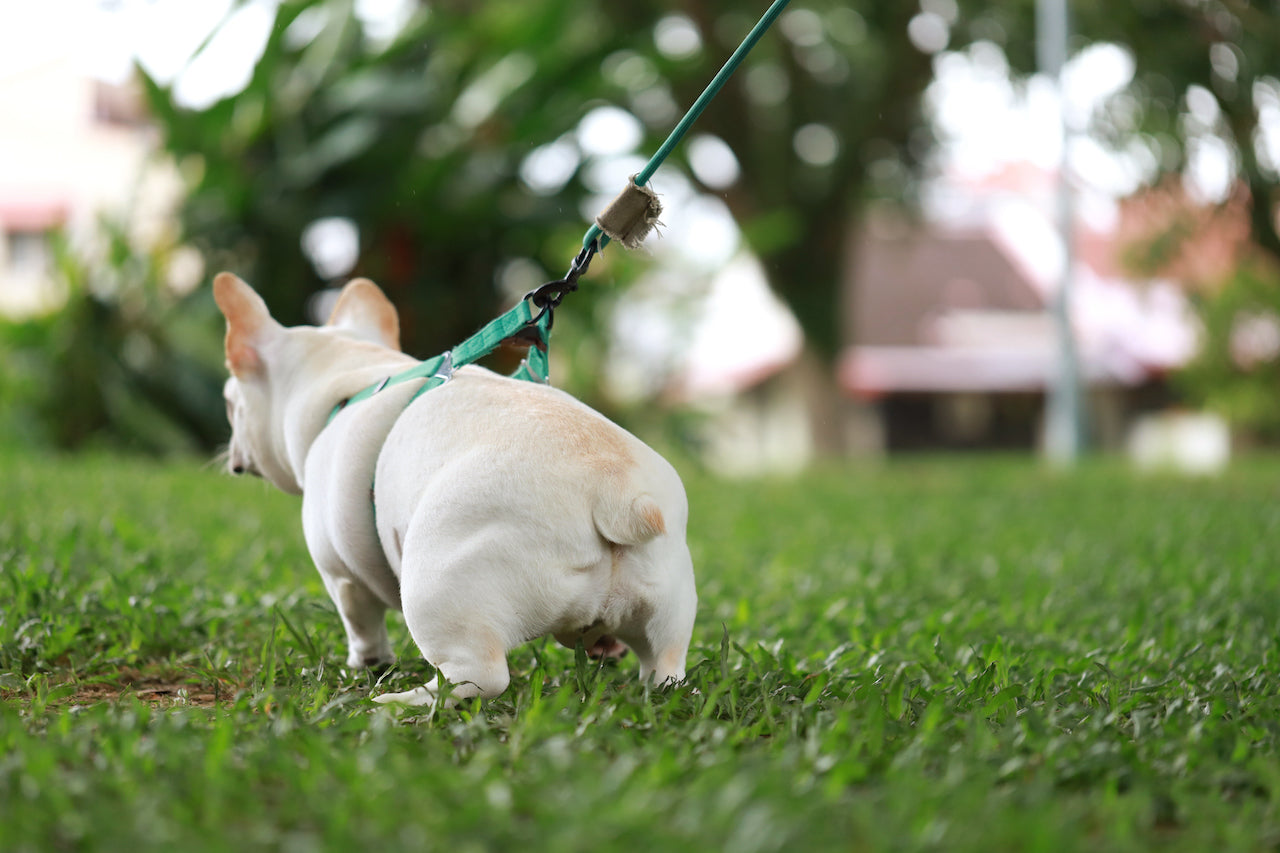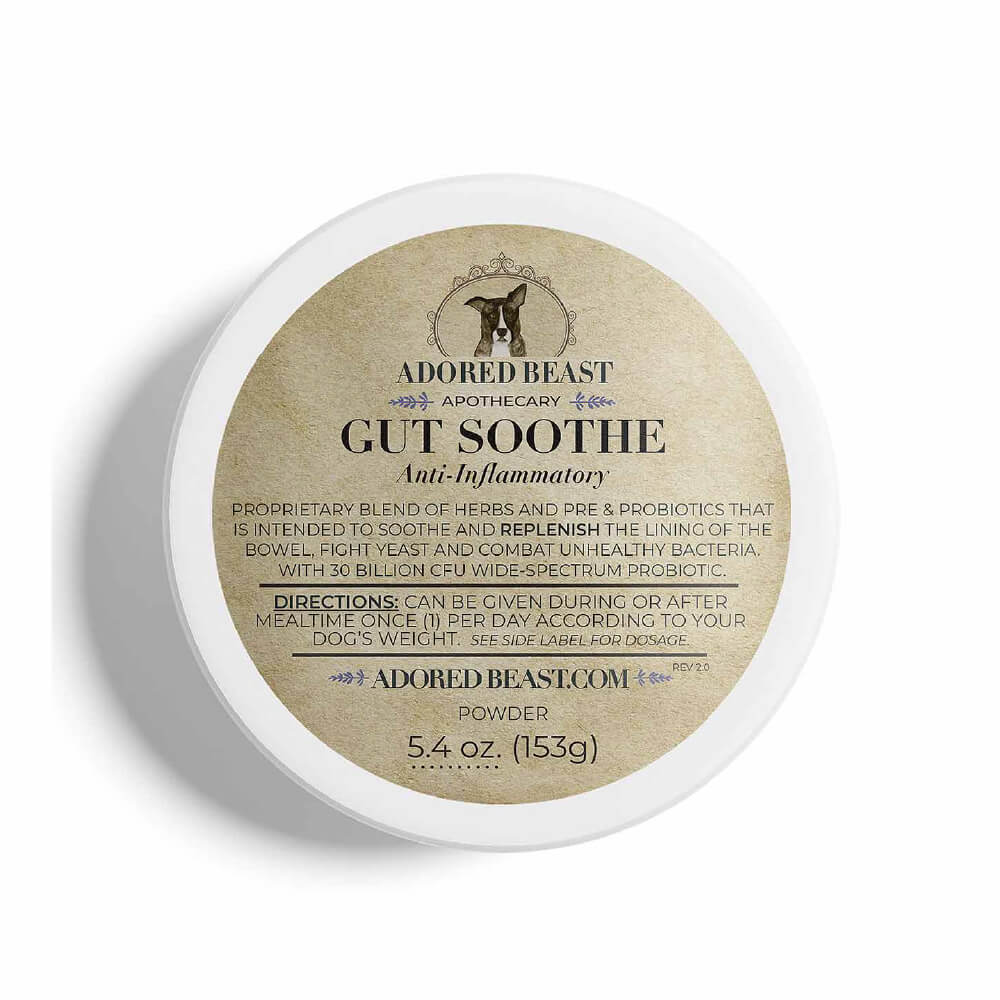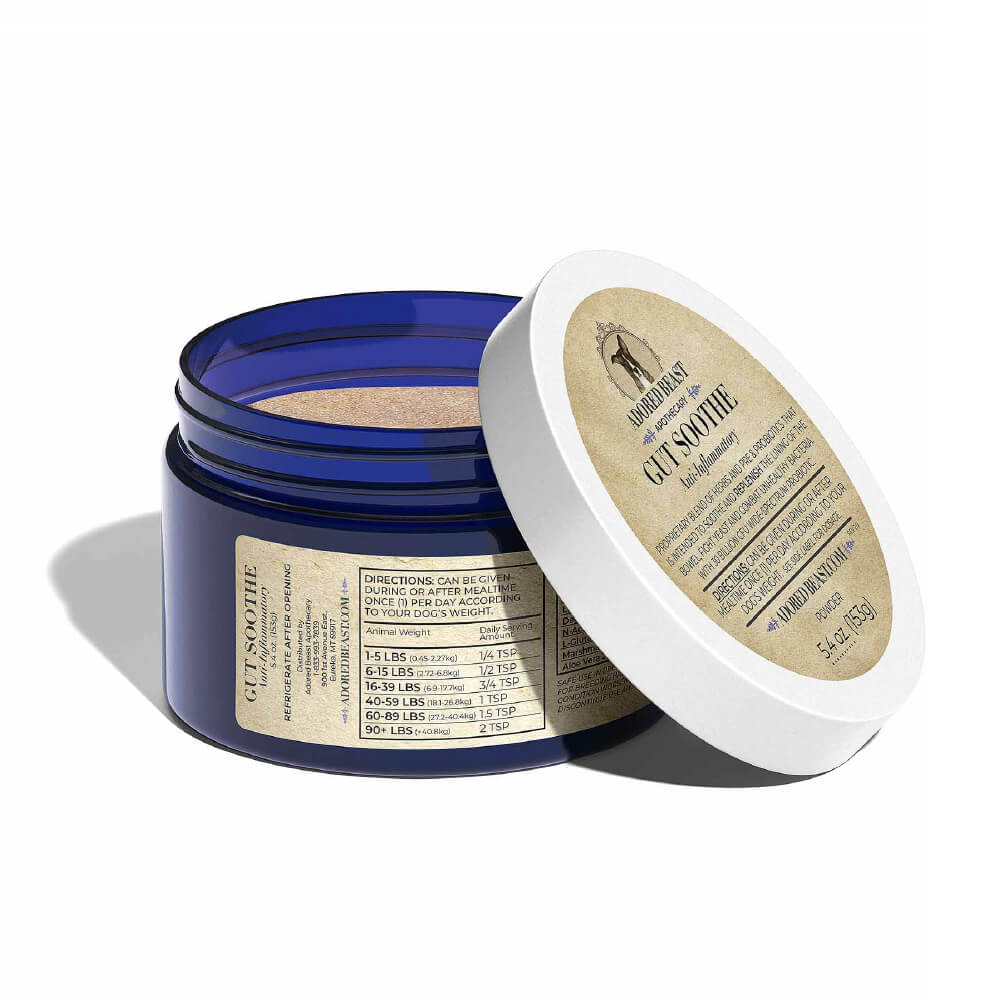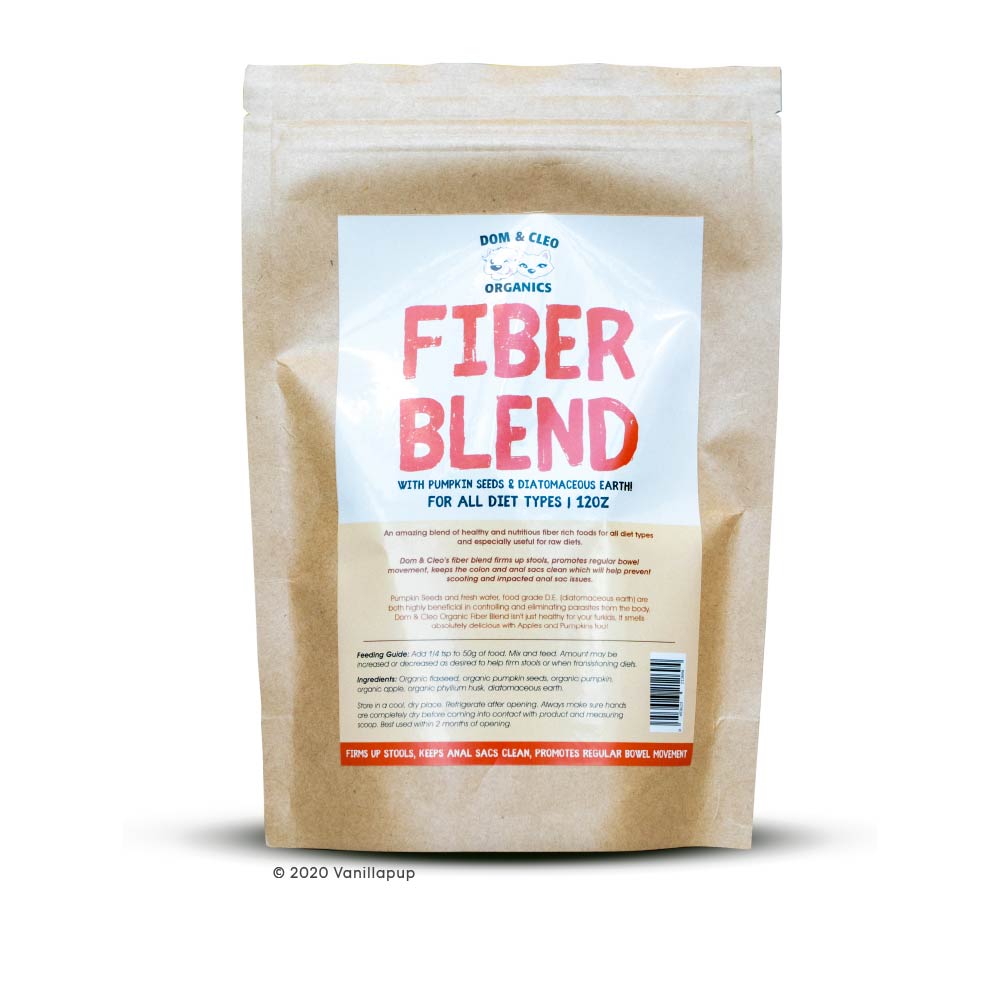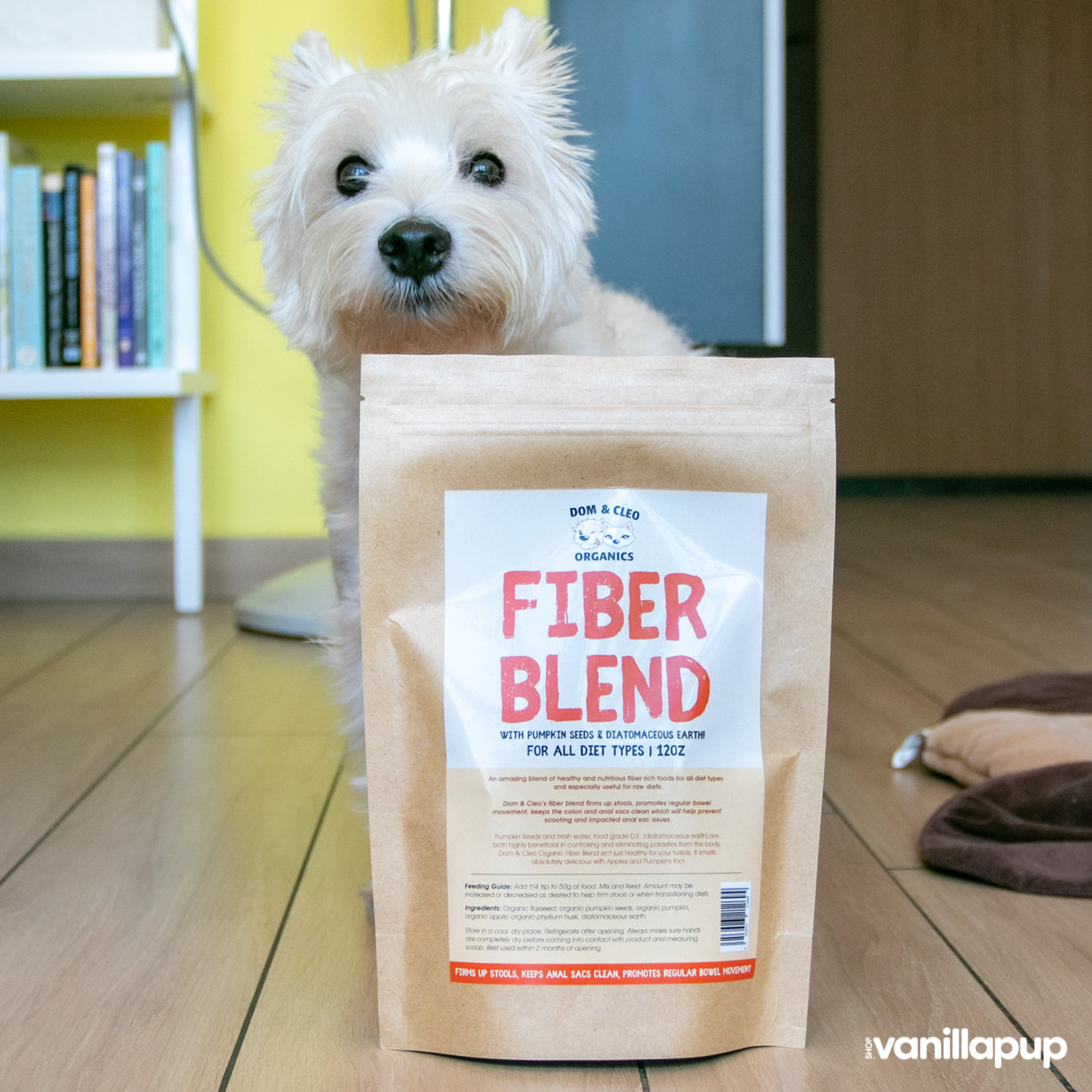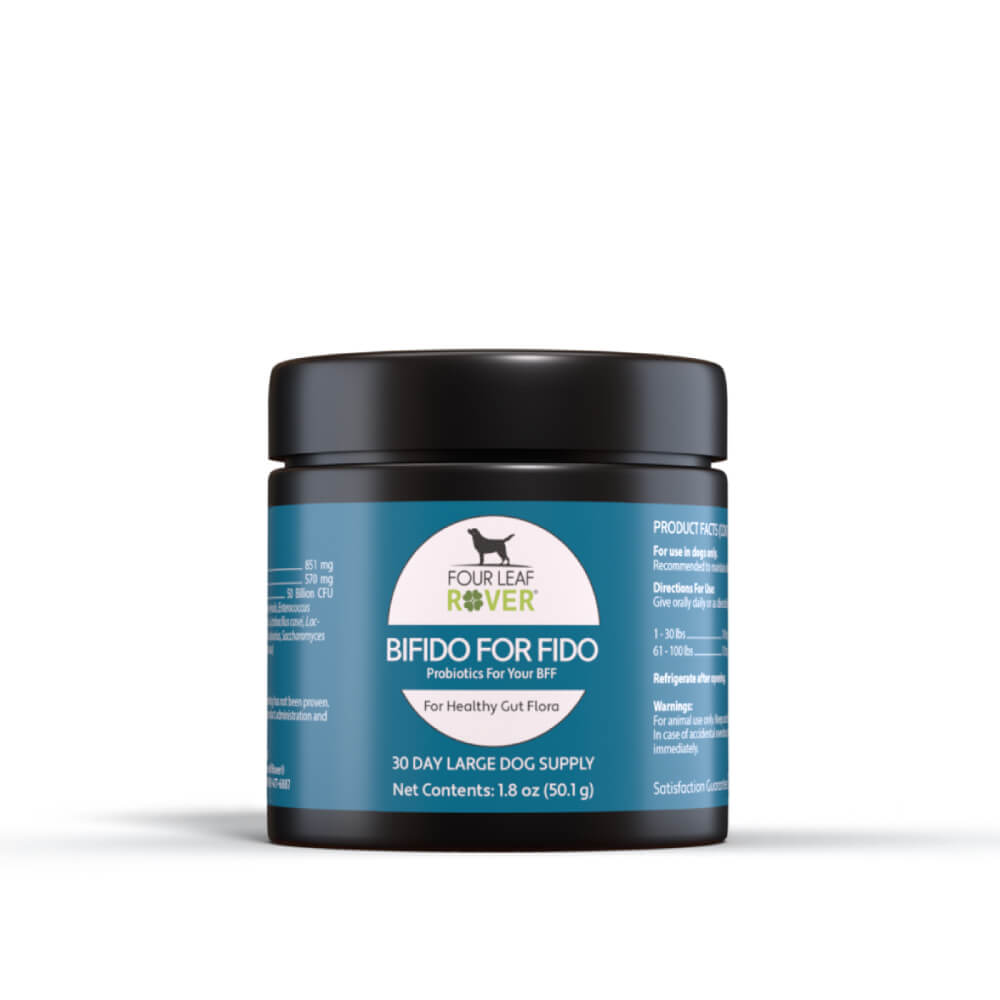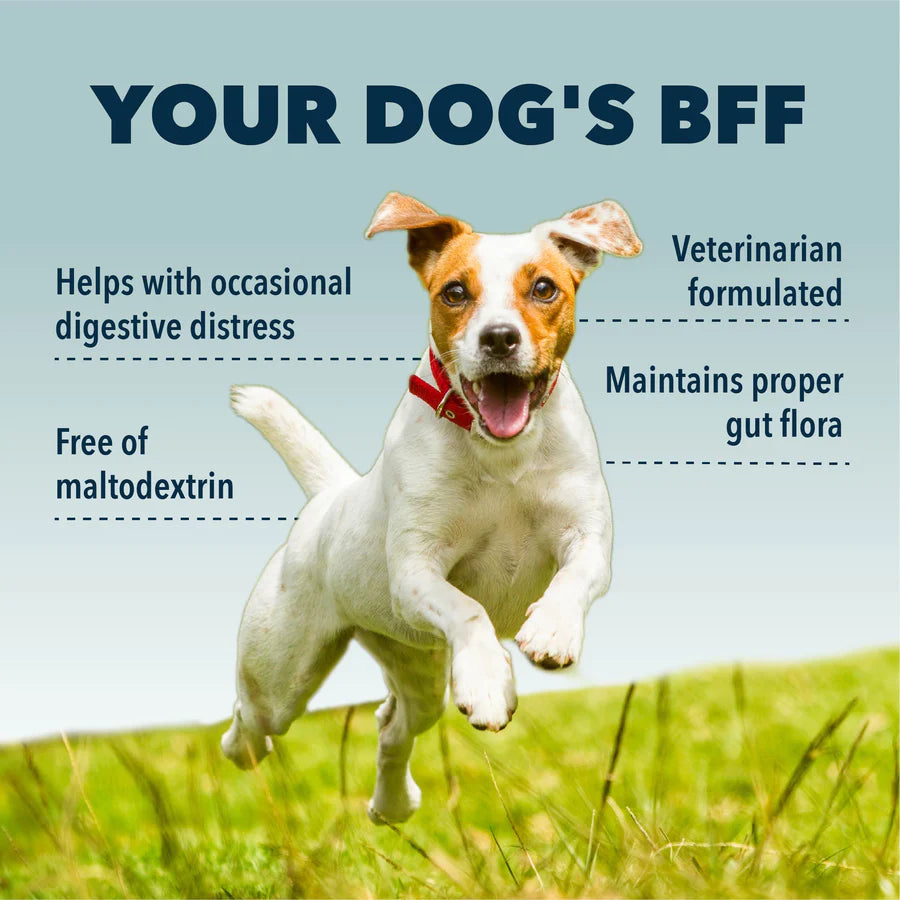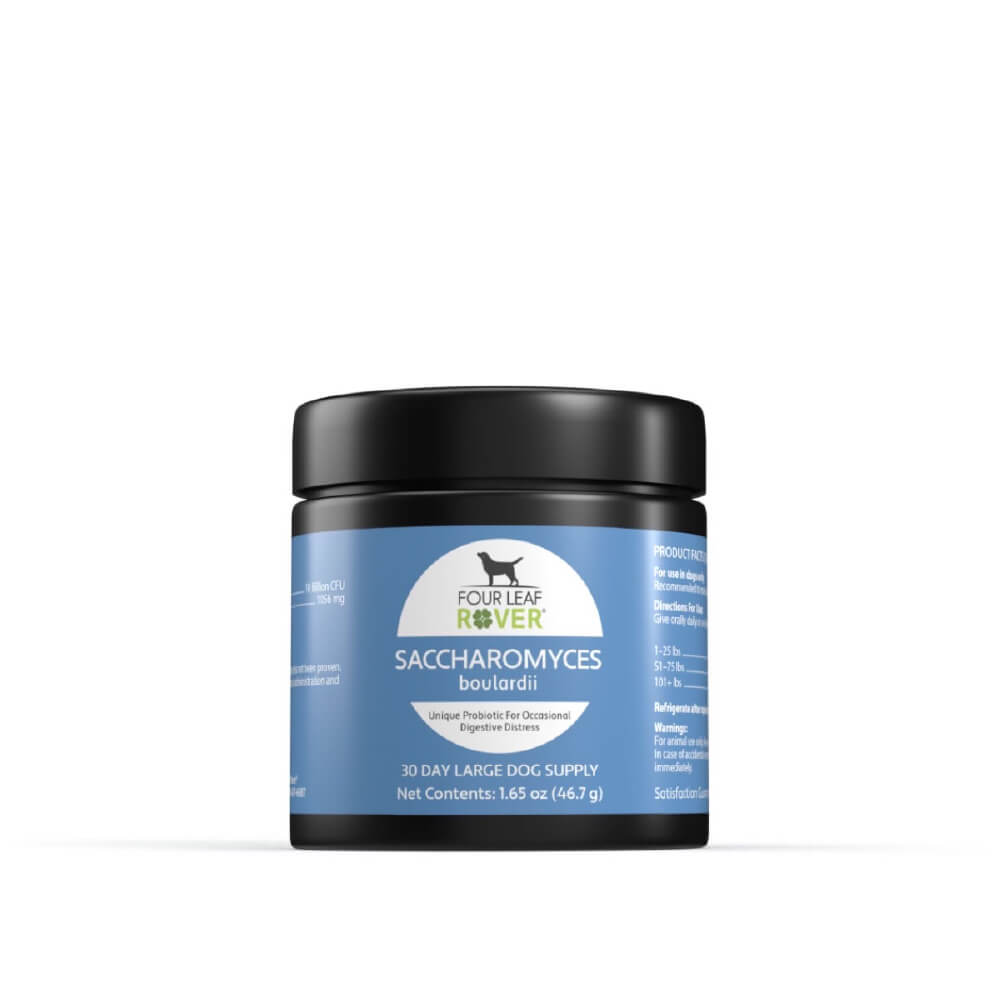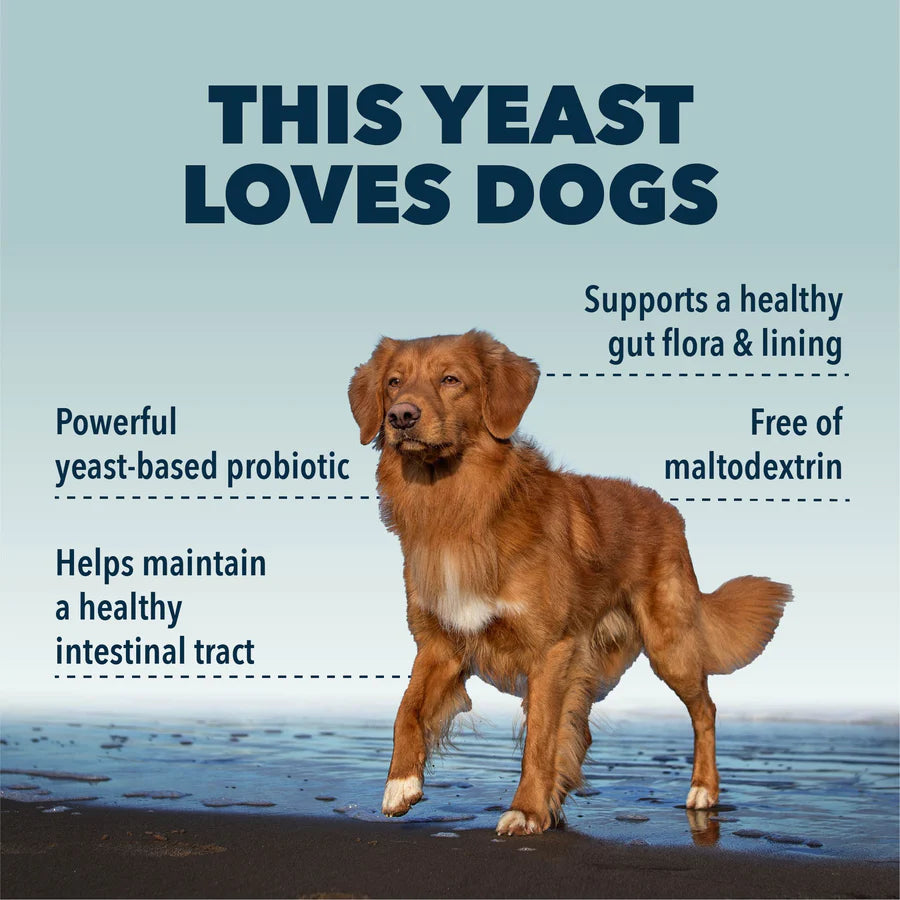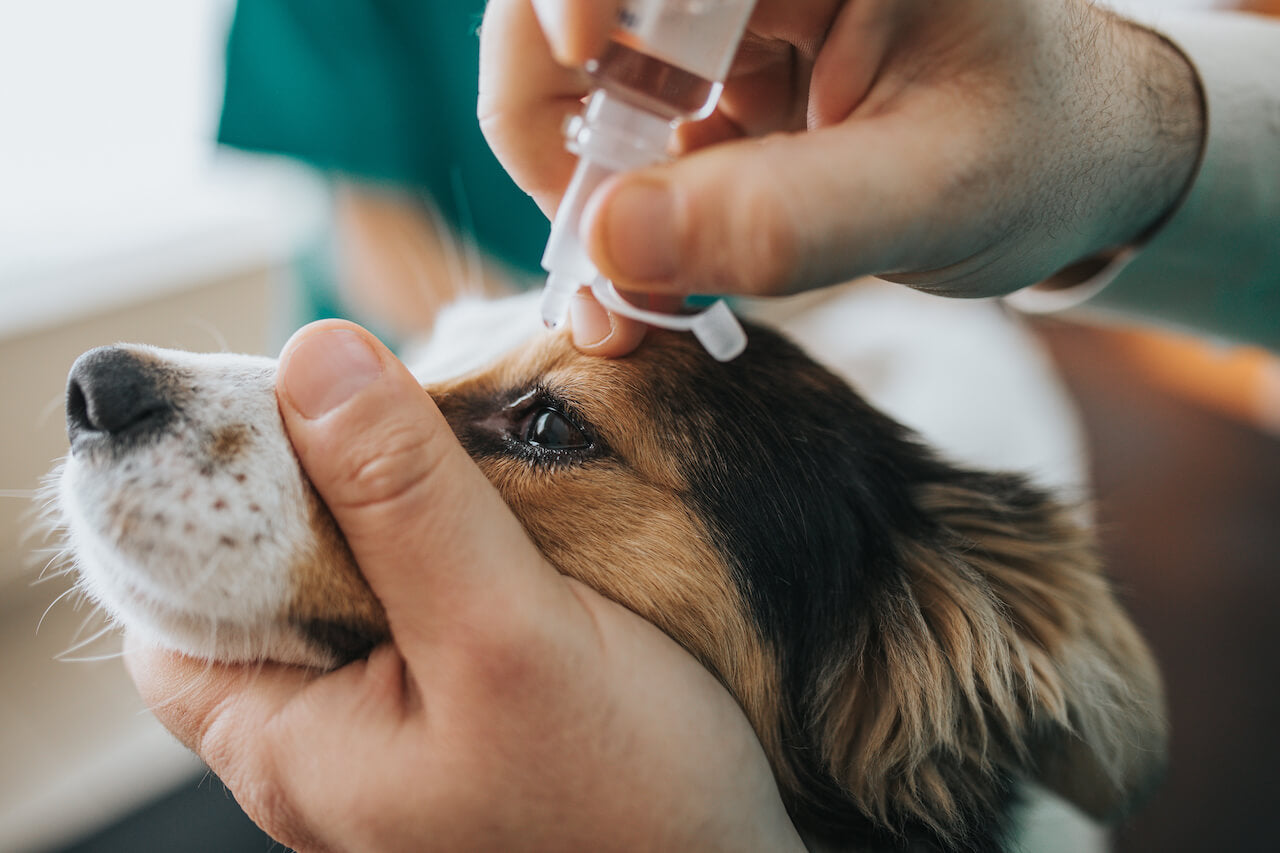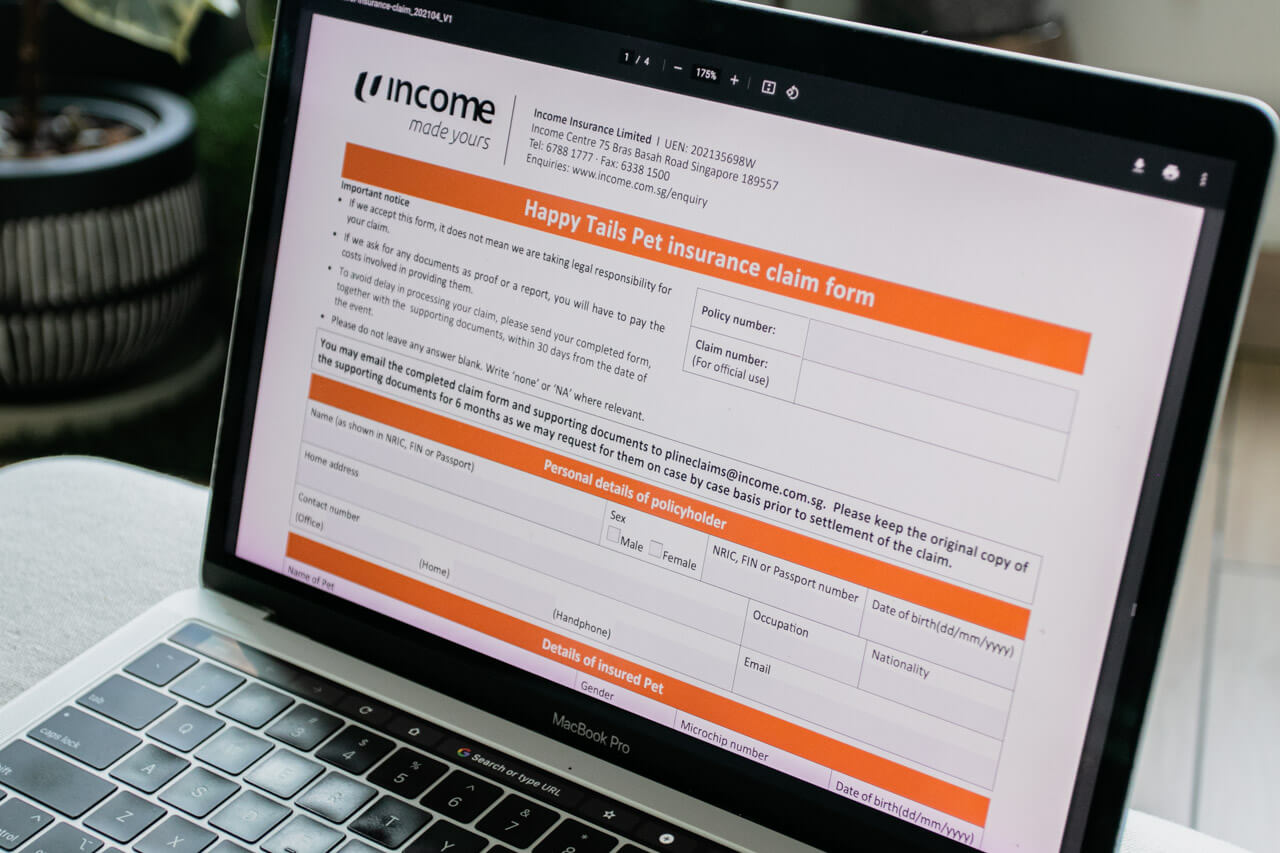Dealing with soft poop is a pretty inevitable part of being a dog parent. Bad poop can range from sloppy logs to puddly diarrhoea. They are not fun to deal with and can be unpleasant for your pup.
Most minor poop problems would resolve themselves in 1-2 days but your pup may need a little help, especially if the symptoms persist.
Common causes of bad poop
- Dietary indiscretion - Your pup eating anything other than their normal diet (e.g. new food, garbage, table scraps) can upset the digestive system. This is especially true for dogs with sensitive tummies.
- Food intolerance - Does your dog get diarrhoea when eating a certain protein? Their digestive system may be intolerant to it.
- Bacteria infection - A dog's stomach is much more acidic than ours but food poisoning can still happen. Diarrhoea is the body's way of purging toxins.
- Parasites - Parasites like Giardia and worms can present in poop. Your vet will request for a stool test and offer treatment accordingly.
- Intestinal blockages - Did your pup swallow a foreign object or a chew that can get stuck along the digestive tract? This can be serious and should be examined by a vet. A blockage is usually accompanied with other symptoms like discomfort, bloating, and loss of appetite.
- Stress - Some dogs get diarrhoea during thunderstorms or when their parents are away on vacation.
- Medications - Soft poop or diarrhoea is a common side effect of medications. If it persists, consult your vet to stop or change medications.
- Over-exertion - Some dogs may get soft poop after having an active day.
- Inflammatory Bowel Disease (IBD) - A persistent condition where your dog's intestinal tract is chronically inflamed, usually accompanied by vomiting and weight loss. This has to be diagnosed by a vet and can only be managed.
Don't panic
When Latte had her first diarrhoea (with blood no less!), I was so worried and Google didn't help by offering me scary possibilities.
Like most new dog parents, I took leave and sent her to the vet. After realising that bad poop, even those with blood, doesn't always mean something serious, Latte never saw a vet for diarrhoea again.
Unless your dog has ingested a foreign object or poisonous substance, you can afford to monitor them. If symptoms worsen or last longer than 5 days, consult a vet promptly.
Apart from that, home remedies have worked well for us and we hope this article would help you too.
Blood and mucus
Fresh blood in poop can be alarming but it is not uncommon. It can be due to non-life-threatening causes like dietary indiscretion, a bacterial infection, or stress. If it only happened once and your dog is otherwise normal, continue to monitor.
For more anxious dog parents, there are also many platforms offering virtual vet consults. It's a good option to get advice without wasting time travelling and waiting at the clinic.
A small amount of mucus in poop is normal. Your dog's digestive system may have identified an irritant and is flushing it out. Some dogs on anti-yeast treatments may also get significant mucus in their poop in the first few days.
If blood and/or mucus persist, consult a vet.
Home remedies that can resolve soft dog poop
1. Fasting
Fasting helps relieve stress on the digestive system and can be effective for dietary indiscretion, food poisoning, and intolerances. Some dogs bounce back as good as new after a short fast.
As for Latte, we didn't fast her as long as she was willing to eat, which was 99% of the time. Do what works for your pup!
2. Slippery Elm
Slippery elm is an amazing prebiotic that forms a temporary protective mucilage layer within our digestive tract. It can soothe inflammation and irritation. If your dog ate something wrong or has a chronic digestive issue, there's no harm adding it to their meals.
3. Fibre
Some dogs require more fibre than others for good bowel movements and firm poop. Fibre also feeds our gut microbiome.
Psyllium husk is a soluble fibre that can help absorb excess liquid and bulk up poop. It works for both diarrhoea and constipation.
By promoting healthy bowel movements, it can also help your dog empty their anal glands naturally.
Pumpkin is another tasty source of fibre that's a popular solution to soft poop. You can add a small portion to your dog's meals.
However, psyllium husk has higher fibre content (a small scoop would usually do the trick) and is a better choice for dogs vulnerable to yeast overgrowth.
4. Probiotics
For dogs with a healthy digestive system, do not add probiotics to their meals. A good diet should maintain this status.
If your dog has long-lasting or recurring digestive issues or an overall weak immune system, it may be due to dysbiosis in the gut.
Dysbiosis occurs when there's an overgrowth of certain bacteria populations, causing an imbalance. Our gut needs a diverse and balanced gut flora to thrive.
Some dogs do benefit from adding the right probiotics to help rebalance the gut. However, consider probiotics with caution. Adding too much of the same probiotic strains can worsen the issue. When choosing probiotics, choose one with a large variety of strains (at least 10) or those with species-appropriate strains.
Monitor your dog and if you don't see an improvement, discontinue or change probiotics. You also do not need to feed probiotics long-term once your dog has recovered.
5. Gut Health Test
There are at-home stool test kits available in the market to detect gut imbalances. We are skeptical of its usefulness, primarily whether it would change treatment plans or cause confusion. Plus, it's quite expensive. If you are curious, go research!
6. Saccharomyces Boulardii
You may have come across S. Boulardii, a strain of yeast that works like a probiotic recently. It's been promoted as being able to reduce gastrointestinal issues and restore the gut flora, particularly during or after antibiotic use. If your dog has chronic digestive issues, consider trying it out.
A good diet
A fresh, balanced quality diet is the foundation for keeping harmony within your dog's gut microbiome. Whole foods like green vegetables, greek yoghurt, and kefir contain fibre, pre and probiotics, and postbiotics; all essential to our gut health.
Keep your dog hydrated
Diarrhoea causes the body to lose water. Always offer your pup easy access to water. Want to show them some extra love? Warm bone broth is a delicious and comforting way to keep them hydrated.

